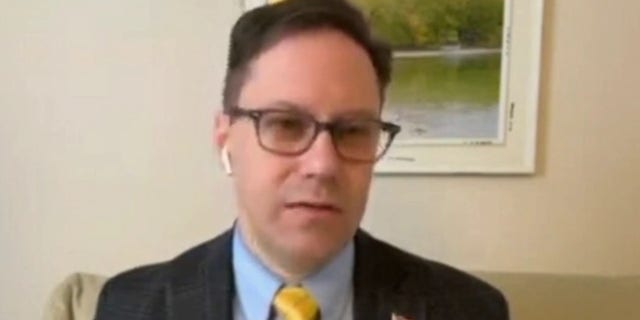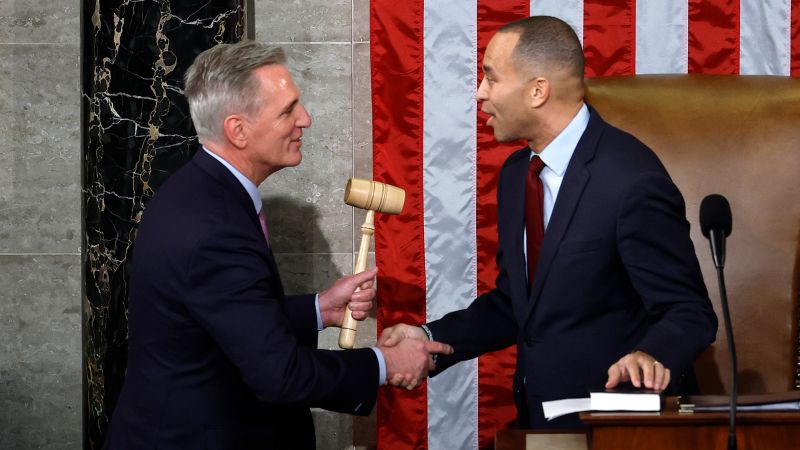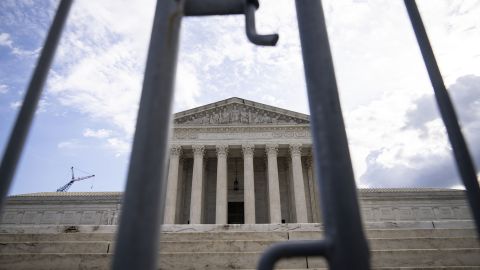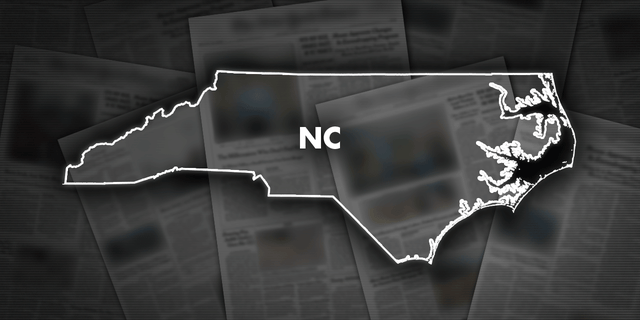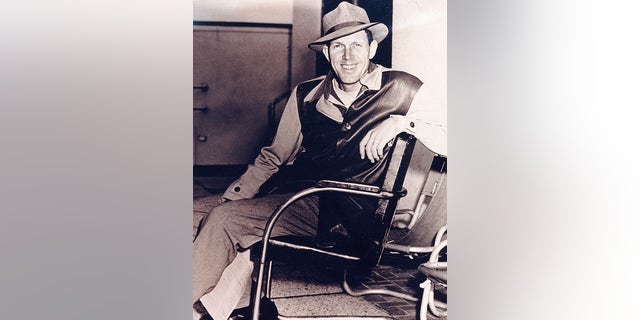Bill France Sr. was born with a mind for business, a gift for people — and a need for speed.
He turned those passions into a nationwide obsession with stock car racing.
France founded the National Association for Stock Car Auto Racing — NASCAR — 75 years ago this week, on Feb. 21, 1948, in Daytona Beach, Florida.
NASCAR has grown into the world’s premier stock car racing circuit. “Big Bill,” as he was known, is the unquestioned godfather of the autosport.
MEET THE AMERICAN WHO FOUGHT AND BLED AT THE ALAMO BUT LIVED TO TELL ITS HEROIC TALE: SLAVE JOE
“His story is a great American success story,” NASCAR historian Ken Martin told Fox News Digital.
“And NASCAR is the great American sport.”
Bill France Sr. in the pre-NASCAR days. France, a native of Washington, D.C., moved to Daytona Beach, Florida, in his 20s, ran an auto shop and raced cars before founding NASCAR in 1948. (ISC Archives/CQ-Roll Call Group via Getty Images)
Stock cars, at least in the sport’s earliest years, were essentially production-model cars turned into racing vehicles.
“Bill’s vision was to basically take cars from the assembly line and put them on the racetrack to see who built the better car, the faster car, the more durable car,” said Martin.
“His story is a great American success story.” — NASCAR historian Ken Martin
“He knew Americans could relate to the vehicles on the racetrack. He also knew he could generate support from Detroit by pitting Chevys against Fords.”
Much as football is a largely American sports phenomenon — other countries dabble in it — stock car racing remains a largely American form of auto competition.
NASCAR LEGEND RICHARD PETTY TAKES ISSUE WITH TEAM OWNERS’ MOVES: ‘IT’S BEEN STRANGE TO ME’
Bill France Sr. was enamored with auto racing as a child and became a master of auto mechanics. He also had a passion for putting his mechanical skills to the test behind the wheels of race cars.
Bill France Sr. looks on from the track he created circa 1959 at the Daytona International Speedway in Daytona Beach, Florida. (ISC Archives/CQ-Roll Call Group via Getty Images)
“He was a gearhead,” said Martin. “But also a competitor.”
France boasted mechanical knowledge, fearlessness behind the wheel, a towering physical stature (6 foot 5 inches) and a charismatic personal presence.
He commanded respect from the toughest drivers in the nation — the proverbial backwoods moonshine runners who fueled the early pool of race-car drivers.
“Well, let’s just say he ‘ran the show,'” NASCAR legend Richard Petty wrote in the foreword to “Big Bill: The Life and Times of NASCAR Founder Bill France Sr.,” a 2015 biography by H.A. Branham.
“Let’s just say he ‘ran the show.’ — NASCAR legend Richard Petty of Bill France Sr.
“It was ‘his show’ and I think that everybody that raced in NASCAR for him knew it was ‘his show.'”
“The big man had big dreams,” writes the International Motor Sports Hall of Fame, “and he made them come true.”
Birthplace of NASCAR
Bill France Sr. was born on Sept. 26, 1909 in Washington, D.C., to William Henry France and Emma (Graham) France, his mother an immigrant from Ireland.
Bill France Sr., was an early open-wheel race driver long before he embraced the future with full-bodied stock cars. Here he shows off this Model T-based sprinter at a track in Maryland in 1931. (ISC Archives/CQ-Roll Call Group via Getty Images)
He fueled his passion for speed as a teenager by racing his Model T at a wooden track in Laurel, Maryland.
He moved to Daytona Beach, Florida, in 1934 with his wife, Anne (Bledsoe) — a nurse and North Carolina native — plus their year-old son Bill Jr. with only “a set of tools and $25 cash,” according to one origin legend.
MEET THE AMERICAN WHO WAS THE FIRST PAID PROFESSIONAL FOOTBALL PLAYER: PUDGE HEFFELFINGER
All three Frances became transformative figures in NASCAR.
Anne served as a longtime NASCAR executive. Bill Jr. took over NASCAR from his father, running the circuit from 1972 until 2000.
Despite arriving in Daytona during the depths of the Great Depression, Bill Sr. landed a job working for local mechanic Saxton Lloyd. It was an opportunity for which France would show his gratitude years later.
Fans react in 1940 as a driver rolls his car during a stock car race on the Daytona Beach-Road Course. Three races were held on the beach that year and were won by Roy Hall, Bill France (later the founder of NASCAR) and Buck Mathis. A special “ladies only” race was also held; it attracted 13 contestants, including France’s wife Anne. Evelyn Reed won the event. (ISC Images & Archives via Getty Images)
He opened his own service station and become a prominent local mechanic while racing cars on Daytona Beach.
The city’s legendary beach-street course raced two miles up the sand, turned on a ramp, then sped two miles back down State Route A1A on pavement before repeating the circuit.
Daytona Beach hosted its first beach-street race in 1936. France finished fifth as a driver, while serving as the pre-race mechanic for winning driver Milt Marion, behind the wheel of a Ford.
“By 1938 the city realized they were not the best at promoting racing,” said Martin. “They asked France to help promote it.”
Sports entertainment exploded across America in the years after the war.
World War II interrupted Daytona’s effort to become the hub of stock car racing.
France put his mechanical abilities toward the war effort.
Before he became “Mr. NASCAR,” Bill France Sr. was a prosperous Daytona Beach garage owner and gasoline retailer. France’s gas station at 316 Main Street was also a haven for area racers anxious to have work performed on their race cars. This 1940s business card shows “Big Bill’s” inventiveness. (ISC Archives/CQ-Roll Call Group via Getty Images)
“Bill Sr., at age 32, was not eligible for the draft and went to work building ‘subchasers’ at the Daytona Boat Works — a major employer of Volusia County residents,” writes biographer Branham.
Sports entertainment exploded across America in the years after the war. The NBA was founded in 1946. Pro football expanded to the West Coast the same year when the NFL Rams moved from Cleveland to Los Angeles.
France added stock car racing to the national menu of sports options.
The rival new All-America Football Conference was also founded in 1946, with familiar franchises such as the 49ers, Browns and Colts soon absorbed by the NFL.
France added stock car racing to the national menu of sports options.
He led a meeting with other drivers, mechanics and auto enthusiasts in December 1947 at Streamline Hotel in Daytona Beach to make plans for a new professional stock car racing circuit with uniform rules, regulations and standards.
A series of three meetings convened at the Streamline Hotel in Daytona Beach to establish criteria for professional stock car racing, leading to NASCAR’s formation. On Dec. 14, 1947: Front row, kneeling (L-R), Chick DiNatale, Jimmy Quisenberry, Ed Bruce, Jack Peters, Alvin Hawkins. Back row, standing (L-R), Freddie Horton, Sam Packard, Ed Samples (hidden), Joe Ross, Marshall Teague, Bill Tuthill, Joe Littlejohn, Bob Osiecki, Buddy Shuman, Lucky Sauer (hidden), Tom Galan, Eddie Bland, Bill France Sr., Bob Richards, Harvey Tattersall Jr., Fred Dagavar, Bill Streeter, Jimmy Cox. (ISC Archives/CQ-Roll Call Group via Getty Images)
NASCAR was formed two months later, with France its chief executive.
The site of the Streamline Hotel “stands to this day as a racing landmark,” says the NASCAR Hall of Fame.
‘World Center of Racing’
Daytona was a magnet for speed enthusiasts in the earliest days of the automobile — long before France arrived and even before France was born.
One of the gas stations Bill France Sr. operated in Daytona Beach, Florida, around the time NASCAR was formed in 1947 is shown here. (ISC Images & Archives via Getty Images)
“On the hard-packed sands of Florida’s east coast, the idea of racing automobiles became a reality in 1903,” writes Michael Hembree in “NASCAR: The Definitive History of America’s Sport.”
“At Ormond Beach, north of Daytona, wealthy winter visitors to the resort area eyed the long flat beach stretches as an ideal landscape for tinkering with their toys.”
MEET THE AMERICAN WHO FOUNDED PICKLEBALL, THE FASTEST GROWING SPORT IN THE NATION
The region’s hard, flat beaches made it the perfect proving ground for daredevils of the day, who topped 200 miles per hour in the straight-shot speed efforts.
English racer Sir Malcolm Campbell astounded onlookers by reaching a record speed of 278.6 MPH on Daytona Beach in 1935, propelled over the land by an aircraft engine.
Auto enthusiasts soon found an even better proving ground out west: the Bonneville Salt Flats of Utah.
The salt flats were harder, straighter and faster, without the inconvenience or even danger of rising tides.
Before the asphalt was laid, Bill France Sr., and members of his NASCAR staff parked these cars on a turn of the under-construction Daytona International Speedway in December 1958. France gambled nearly everything he owned in building the facility that is known as “The World Center of Racing.” (ISC Archives/CQ-Roll Call Group via Getty Images)
Daytona lost one of its cash cows. It turned to racing as a way to replace the business lost to Bonneville, said Martin.
“Daytona was looking to plug a hole in its economy,” said Ken Martin, when it tapped France to help promote its beach-street races in the 1930s.
English racer Sir Malcolm Campbell astounded onlookers by reaching a record speed of 278.6 MPH on Daytona Beach in 1935.
He took NASCAR off the beaches in the 1950, pushing the sport into its modern era.
He envisioned, planned and funded the racetrack of the future: Daytona International Speedway.
“France put his plans for the future of racing in Daytona Beach, Florida, in motion on April 4, 1953, with a proposal to construct a permanent speedway facility,” reports the speedway in an online account of its history.
“On August 16, 1954, France signed a contract with City of Daytona Beach and Volusia County officials to build what would become Daytona International Speedway, the ‘World Center of Racing.”
The 2.5-mile speedway opened in 1959. Among its ground-breaking features: 31-degree banking turns that allowed race cars to maintain dramatic speeds in the turns.
The Daytona infield boasted a 29-acre lake — Lake Lloyd, named in honor of the mechanic who gave France his first job in Daytona.
NASCAR driver Michael McDowell poses with his team as he competes at the annual Hot Rods & Reels Celebrity Fishing Tournament to benefit The Darrell Gwynn Chapter of The Buoniconti Fund to Cure Paralysis at Daytona International Speedway’s Lake Lloyd, Feb. 18, 2022. Lake Lloyd is named for Saxton Lloyd, a mechanic who gave Bill France Sr. his first job in Daytona. (James Gilbert/Getty Images for The Buoniconti Fund To Cure Paralysis)
France built an even larger track in Alabama, the 2.66-mile Talladega Superspeedway, in 1969.
“He had a vision for building these huge trace tracks, because he knew they’d handle high speeds and attract huge crowds,” said Martin.
Daytona International Speedway, France’s speedway, remains NASCAR’s premier track.
The circuit kicks off the new racing season each February with the Daytona 500. It’s also been the site of the sport’s most important events.
Racing legend Dale Earnhardt won his first Daytona 500 after 20 attempts in February 1998 — “a major event” in NASCAR history by the beloved driver, said Martin.
“Dale Earnhardt’s death was a pivotal moment in (NASCAR) history.” — Ken Martin.
It’s also where Earnhardt was tragically killed in February 2001, on the last lap of the Daytona 500.
“NASCAR has lost its greatest driver ever, and I personally have lost a great friend,” Bill France Jr., then NASCAR’s chairman, said in the aftermath.
MEET THE AMERICAN WHO CREATED THE NATION’S FIRST SPORTS BAR IN ST. LOUIS: WORLD WAR II VETERAN JIMMY PALERMO
Earnhardt’s death was one of the first events that “blew up the internet,” to use a more recent term. The nationwide outpouring displayed over the internet proved Earnhardt’s popularity — and that NASCAR had become far more than just a regional phenomenon.
Dale Earnhardt checks out the view from the newly completed Earnhardt Grandstand during winter testing, two weeks before the Daytona 500, at Daytona International Speedway, Daytona Beach, in this file photo from Feb. 2001. He was killed on the last lap of the Daytona 500 on Feb. 18, 2001. (Brian Cleary/Getty Images)
The tragedy at Daytona, said Martin, ultimately made NASCAR better and safer.
NASCAR moved the driver’s seat closer to the center of the vehicle, built a “cocoon” around the drivers, mandated head restraints and built soft-barrier walls to absorb some of the impact of a crash.
“Earnhardt’s death was a pivotal moment in our history,” said Martin. “It made everyone refocus on safety.”
‘Something to do with all of this’
Bill France Sr. died on June 7, 1992, after battling Alzheimer’s disease.
He was 82.
NASCAR today is recognized as the world’s premier stock car racing circuit with a devoted fan base around the nation.
Races have expanded far beyond NASCAR’s early southeastern base. NASCAR races are held from California to New England, and from Austin to Milwaukee.
NASCAR founder and former CEO Bill France Sr., left, talks with a U.S. Secret Service agent regarding security for Vice President George H.W. Bush prior to the start of the 1983 Daytona 500 stock car race at Daytona International Speedway in Daytona Beach. Bush served as the race’s honorary starter. (Robert Alexander/Getty Images)
About 2.5 million people attend NASCAR races each year, generating about $200 million in revenue, according to industry data. Millions more watch each race on television.
NASCAR inked an $8.2 billion, 10-year deal with Fox Sports and NBC Sports in 2015.
CLICK HERE TO SIGN UP FOR OUR LIFESTYLE NEWSLETTER
NASCAR was briefly publicly traded, but is once again run by the France family.
“Big Bill” has enjoyed countless honors in the sports world.
NASCAR founder and president Bill France Sr. walking down the raceway at Daytona International Speedway in Daytona, Florida, on Feb. 16, 1968. (Eric Schweikardt /Sports Illustrated via Getty Images)
He’s a member of the International Motorsports Hall of Fame, the Motorsports Hall of Fame of America, the Automotive Hall of Fame, the Daytona Beach Stock Car Racing Hall of Fame and — of course — the NASCAR Hall of Fame.
“I think Bill Sr. would be proud of NASCAR today, proud of the fact that his son took it one step further than he did and proud that his grandson has taken it another step further,” Richard Petty wrote in “Big Bill: The Life and Times of NASCAR Founder Bill France Sr.”
CLICK HERE TO GET THE FOX NEWS APP
“Now, he wouldn’t have done it the same way, but he would have sat back and told you: ‘Yeah, I had something to do with all of this.’”
To read more stories in this unique “Meet the American Who…” series from Fox News Digital, click here.
Kerry J. Byrne is a lifestyle reporter with Fox News Digital.


